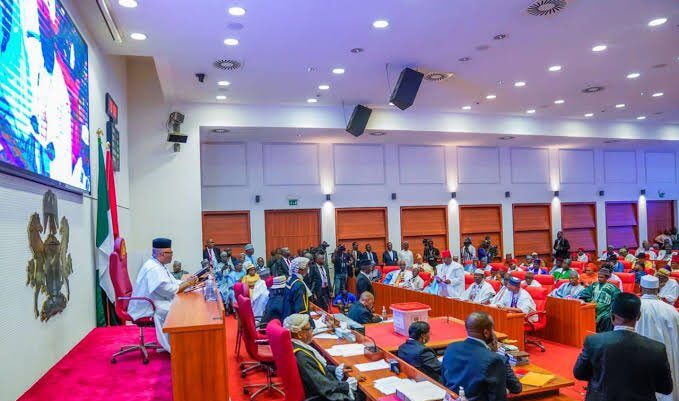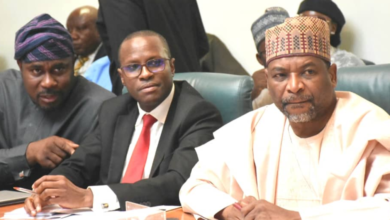Nigerian Senate to address critical Tax Reform Bills after Easter holidays

The Nigerian Senate is set to deliberate on the highly anticipated Tax Reform Bill 2024 immediately after the Eid-El-Fitr and Easter holidays.
The Easter break runs between April 18 and 21.
The Leader of the Senate, Opeyemi Bamidele, highlighted the significance of these bills, describing them as transformational initiatives poised to redefine Nigeria’s fiscal framework.
Speaking on the upcoming discussions, Bamidele said, “The tax reform bills are game changers that will significantly redefine and transform our country’s fiscal environment.”
Key Highlights of the Tax Reform Bills
The proposed reforms are designed to address long-standing inequalities in Nigeria’s tax system, offering relief to vulnerable groups while fostering economic growth.
Personal Tax Relief: Employees earning N1,000,000 or less annually will be exempt from paying income tax, easing the burden on low-income earners.
Corporate Tax Exemptions: Small businesses with a capital base of N50 million or below will enjoy tax-free status, providing a much-needed boost for entrepreneurship and small-scale enterprises.
VAT Reforms: Value Added Tax (VAT) will no longer apply to essential goods and services such as food items, education, transportation, and medical treatment, directly benefiting the masses
Bamidele emphasized that these reforms aim to rectify inequalities within the tax system while encouraging economic inclusivity.
What you should know
- In March, the Nigerian House of Representatives passed four critical tax reform bills after extensive deliberations, including a clause-by-clause review in the Committee of the Whole.
- The bills, which were initially submitted to the National Assembly by the Executive in October 2024, underwent a public hearing by the House Committee on Finance, where stakeholders presented diverse perspectives.
- The Leader of the Senate expressed optimism about the bills’ impact, stating, “When enacted, these bills will address inequality and injustice that characterize our tax system.”
Having secured approval from the House, the proposed tax reforms now require Senate endorsement.
Once passed by the upper chamber, they will be forwarded to President Bola Tinubu for assent. Upon enactment, these reforms are expected to enhance Nigeria’s fiscal policies, streamline revenue collection processes, and eliminate systemic inefficiencies.
Why this matters
- The Tax Reform Bill 2024 aligns with the Federal Government’s broader goals to boost revenue generation while alleviating the economic burden on citizens and businesses.
- The proposed framework marks a significant step toward modernizing Nigeria’s tax code, creating a more equitable system that supports sustainable economic growth.
- Given its emphasis on both fiscal responsibility and social impact, the bill could serve as a critical pillar in President Tinubu’s economic strategy. The reforms aim to foster investor confidence, improve transparency in tax administration, and provide a strong foundation for long-term economic stability.





